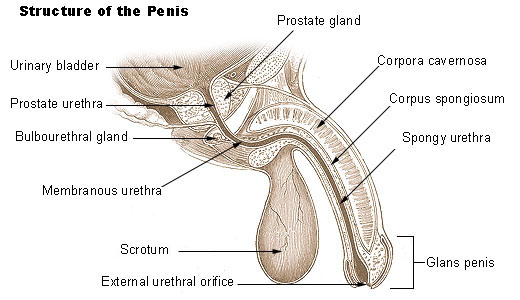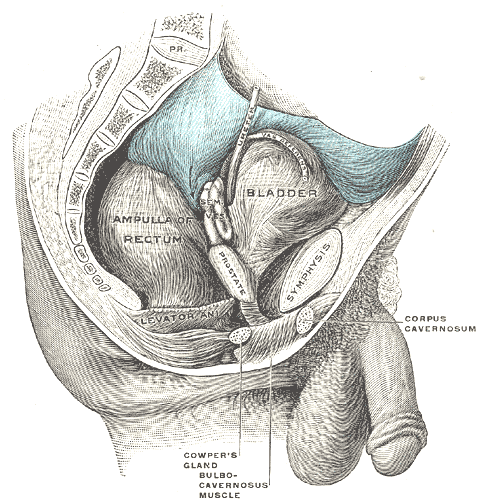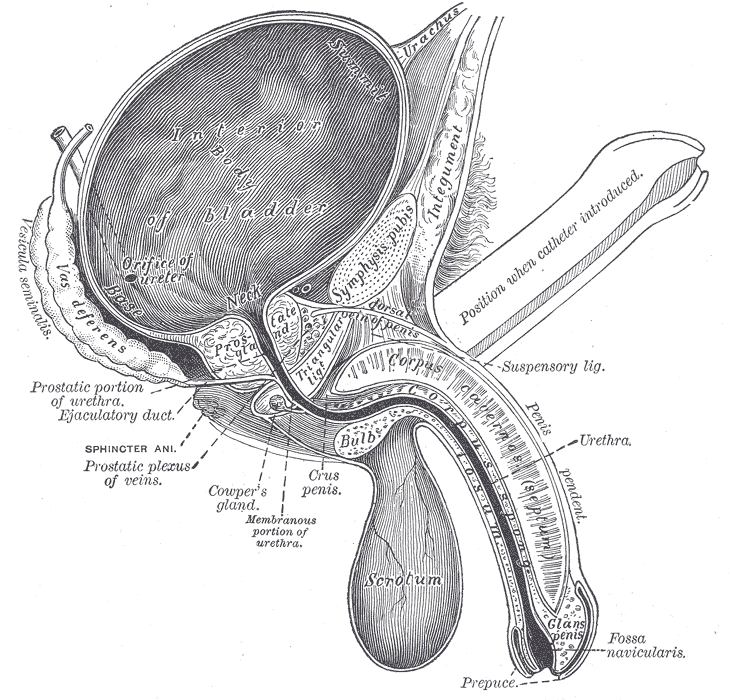Bulbourethral gland
Template:Infobox Anatomy Editor-In-Chief: C. Michael Gibson, M.S., M.D. [1]
Overview
A bulbourethral gland (or Cowper's gland) is one of two small exocrine glands present in the reproductive system of human males. They are homologous to Bartholin's glands in females.
Location
Bulbourethral glands are located posterior and lateral to the membranous portion of the urethra at the base of the penis, between the two layers of the fascia of the urogenital diaphragm, in the deep perineal pouch.
They are enclosed by the transverse fibers of the sphincter urethrae membranaceae muscle.
Structure
The bulbourethral glands are compound tubuloalveolar glands, each approximately the size of a pea. They are composed of several lobules held together by a fibrous covering. Each lobule consists of a number of acini, lined by columnar epithelial cells, opening into a duct which joins with the ducts of other lobules to form a single excretory duct. This duct is approximately 2.5 cm long and opens into the urethra at the base of the penis. The glands gradually diminish in size with advancing age.[1]
Function
During sexual arousal each gland produces a clear, viscous secretion known as pre-ejaculate. This fluid helps to lubricate the urethra for spermatozoa to pass through, and to help flush out any residual urine or foreign matter. It is possible for this fluid to pick up sperm, remaining in the urethral bulb from previous ejaculations, and carry them out prior to the next ejaculation.
References
- ↑ Gray's Anatomy, 38th edn, p 1861
Additional images
-
Structure of the penis
-
Male pelvic organs seen from right side.
-
Vertical section of bladder, penis, and urethra.
See also
Template:Male reproductive system
bg:Булбо-уретрална жлеза cs:Cowperova žláza da:Cowpers kirtel de:Bulbourethraldrüse dv:ބަލްބޯ ޔުރެތުރަލް ގްލޭންޑް it:Ghiandole di Cowper he:בלוטות קאופר lt:Kuperio liauka hu:Cowper-mirigyek nl:Cowperse klier simple:Bulbourethral gland sl:Mehurčasta žleza sv:Cowpers körtlar


